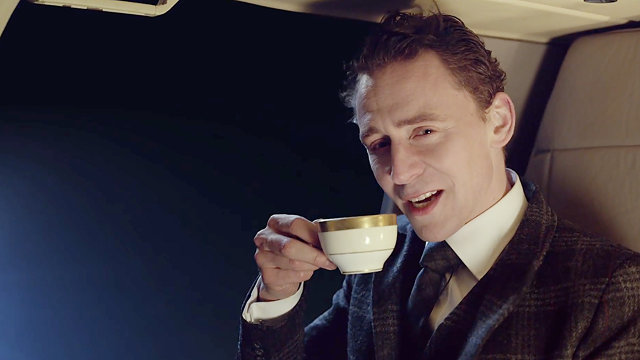 It comes down to the wire between Ernest and Celestine, Becket, and The Dark Knight - three movies that are so wildly different as to make comparison nearly impossible. I'm going to have to go with entertainment value and choose Ernest and Celestine, a slight but lovely tale of friendship, art, and forgiveness. Unusual for the modern children's movie, and despite its palette of light colors, this film has quite a few harsher edges - this world isn't one without pain and death, though it treats them with a comic spin.
It comes down to the wire between Ernest and Celestine, Becket, and The Dark Knight - three movies that are so wildly different as to make comparison nearly impossible. I'm going to have to go with entertainment value and choose Ernest and Celestine, a slight but lovely tale of friendship, art, and forgiveness. Unusual for the modern children's movie, and despite its palette of light colors, this film has quite a few harsher edges - this world isn't one without pain and death, though it treats them with a comic spin. A 2 1/2 hour film set in a silent monastery, Into Great Silence (Die Große Stille) is of those movies that really, really ought to be boring, but isn't. It's about silent people, not silence. The rain still patters on the rooftop, feet echo in the dusky hallways, wind whistles in the eaves, ponderous bells mark out the pace with solemn, inevitable regularity. The seasons change. We come to know the faces of these men, so anachronistically pious and dedicated. We come to see their thoughtful faith and sacrificial, unassuming love. It's a transcendent experience. Steven Greydanus's review.
A 2 1/2 hour film set in a silent monastery, Into Great Silence (Die Große Stille) is of those movies that really, really ought to be boring, but isn't. It's about silent people, not silence. The rain still patters on the rooftop, feet echo in the dusky hallways, wind whistles in the eaves, ponderous bells mark out the pace with solemn, inevitable regularity. The seasons change. We come to know the faces of these men, so anachronistically pious and dedicated. We come to see their thoughtful faith and sacrificial, unassuming love. It's a transcendent experience. Steven Greydanus's review.TV:
 I probably shouldn't admit it, but I'm a sucker for sitcoms about elderly British people being mean to one another. Like Last of the Summer Wine or To the Manor Born, As Time Goes By makes the most of we're-getting-old humor, but has slightly more gravitas when handling the characters. It isn't afraid of earnestness, and amidst all the whimsicality and sex jokes (not too crass, m'dear, we're British) come intervals of calm sincerity. Also: Judi Dench (ever-elegant) and Geoffrey Palmer (ever-jowly) are terrific. Watch here.
I probably shouldn't admit it, but I'm a sucker for sitcoms about elderly British people being mean to one another. Like Last of the Summer Wine or To the Manor Born, As Time Goes By makes the most of we're-getting-old humor, but has slightly more gravitas when handling the characters. It isn't afraid of earnestness, and amidst all the whimsicality and sex jokes (not too crass, m'dear, we're British) come intervals of calm sincerity. Also: Judi Dench (ever-elegant) and Geoffrey Palmer (ever-jowly) are terrific. Watch here.Agatha Christie's Poirot is over. My childhood goes with it. For those wondering (all two of you), I have not yet been able to bring myself to review Curtain. Mix of a) didn't like it as much as I wanted to, b) I haven't watched it again and c) I think I'm in denial. I'm currently nursing myself back to health watching the earliest episodes/David Suchet interviews (always a pleasant experience). Reviews: Elephants Can Remember. The Big Four. Dead Man's Folly. The Labours of Hercules.
Hannah Long





.jpg)